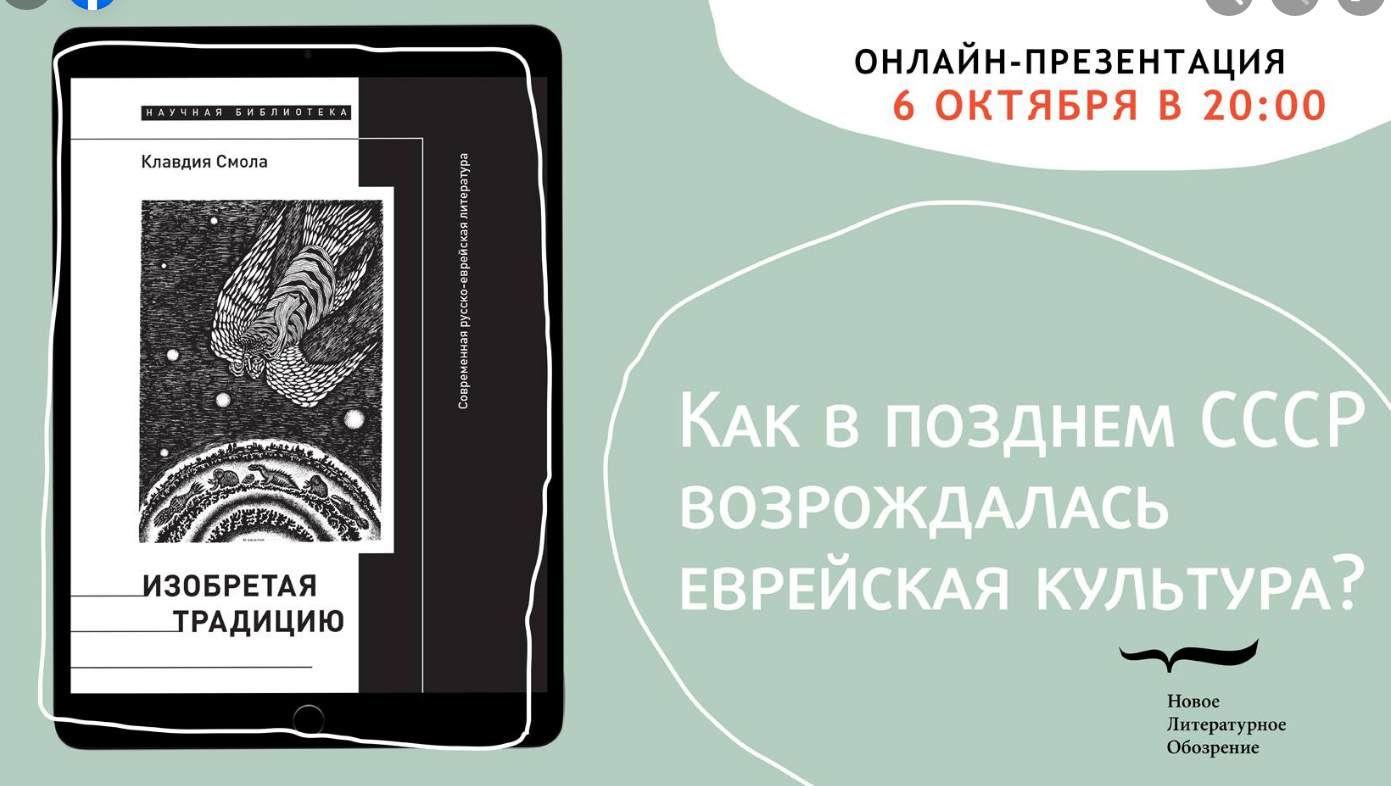How was Jewish culture revived in the late USSR?
Online presentation and discussion of Claudia Smola's book “Inventing Tradition. Contemporary Russian-Jewish literature "(UFO, 2021). The conversation will focus on how the revival of Jewish culture took place in the midst of the late Soviet underground - the first “Jewish Revival” in Russia since the times of the Jewish avant-garde of the 1920s. But unlike the pre- and early Soviet period, it took place under the most unfavorable conditions: an unspoken ban was imposed on Jewry, and Jewish traditions were already forgotten or supplanted by many. In the 1960s and 80s, almost completely assimilated Soviet Jews began to secretly study Hebrew and Jewish mysticism, convert to Judaism, and explore their origins in the narrow (family) and broad (ethnic or national) sense. Their culture was for the most part the culture of "refuseniks": Jews who for years, and sometimes decades, waited for permission to leave for Israel: many called it and now call it "to make aliyah", that is, "to ascend", "to ascend" to their homeland.In her book, Claudia Small explores what kind of culture and literature this movement has spawned. How traditions in the literature of the Jewish underground - and already in emigration - were not so much recalled and revived as (re) invented. And what unprecedented energy of resistance to the Soviet dictatorship the biblical "genetic" memory suddenly acquired (of course, as a kind of construct). There was something like an intrusion of myth into the Soviet present - a "fiery memory", according to Jan Assman, and sometimes the expectation of an apocalypse. No less remarkable, however, is how, after the collapse of the USSR, writers deconstructed the utopian language - both Soviet and Israeli - using postmodern techniques and the metaposition of artistic analysis. How did the Israeli utopia (in literature and outside of it) relate to the Soviet utopia? How, after emigration, for many, this utopia was replaced by disappointment, and what “antiplots” did the collapse of illusions give rise to? How has the Soviet empire been exposed in Russian-Jewish literature since the 1990s? The discussion will be attended by: • Marat Greenberg (moderator) - literary critic and film critic, professor of the Russian language and the humanities at Reed College (USA); • Roman Katsman - literary critic, professor of the Department of Jewish Literature at Bar-Ilan University (Israel); • Ilya Kukulin - literary critic, literary critic, poet (Moscow); • Mark Lipovetsky - literary critic and critic, professor at Columbia University (New York);• Claudia Smola - philologist and culturologist, professor, head of the department of Slavic literature at the University of Dresden (Germany); • Maxim D. Shrayer - literary critic, writer, professor at Boston College (USA).
